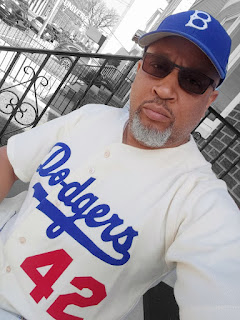It’s practically surreal that a project I started on May 2, 2020 in the midst of a global pandemic is still going strong 4 years later and hasn’t lost its relevancy. Said differently, 210 weeks later or said even differently, 425 hours later in terms of the amount of hours that have been livestreamed. In fact, the platform is much larger now than it was back then because it is now global.
I created this platform as an 18-week virtual academy to address the assistant principalship which I have stated emphatically over the past decade as “the most misunderstood and underutilized position in all of education.” I was keenly aware that I was connected to a ton of AP’s nationally via social media so I went on and launched the Virtual AP Leadership Academy. For the first two months, I used my phone, tablet and laptop as my cameras with a pretty funny looking set up but it worked. Then my man, Dr. William Flip Clay turned me on to Streamyard and the rest is history.
Once I hit 18 weeks which was the last week in August, 2020 and I saw that thousands were either still tuning in live or watching the videos on YouTube, I knew I couldn’t stop. In fact, it would be ridiculous to stop so I kept it going, and it grew and grew and grew. Now, when I speak at national, state and international conferences, I ask my audiences, “Where’s my AP & New Principals Academy fam,” and there’s always a good number of people in those audiences who are a part of the fam. We take a group picture together and then I turn to face them and deliver a short “Message to the Fam.”
For 52 weeks, I went solo for about 90 minutes per session but after that first year, I decided that it was time to bring in some other voices onto the platform, starting with my friend of over 40 years, Dr. Vincent Stalling and now to date, I have had over 150 informative, inspiring and empowering guests to grace the platform. Each of them have been a blessing to thousands of school and district leaders, not to mention the aspiring leaders who tune in regularly.
Last summer, life compelled me to rebrand meaning after Year 3. Why? Because of the volume of assistant principals who were telling me that the academy was instrumental in them getting principal appointments and therefore feeling that the academy was no longer for them. They were inaccurate with their assessment….it was more for them now than ever before but I resultantly changed the name and focus of the platform to the AP & New Principals Academy (from Virtual AP Leadership Academy) and defining new principal as 5 years, and we have been the AP & New Principals Academy ever since.
I am extremely proud of this aspect of my work. As everyone who will read this commentary knows, I am a professional speaker. I get paid to speak to audiences about topics that I am absolutely passionate about. I couldn’t live my life any other way. I am blessed. I call that my “day job.” As much as I love my day job, my day job is NOT my most important work. My most important work is the AP & New Principals Academy. I don’t get paid a dime for this work…nor do I want to. Many want to pay me but I typically refuse it. The Academy is a labor of love. Normally, each session takes me a week to prepare for so while I’m on those night flights fighting to stay awake, I am preparing for the next session with the intent of delivering a high quality session each week. The AP & New Principals Academy is a labor of love and my contribution to the world. I am known to say to fellow speakers, be sure that you don’t have a price tag on every word you utter. Have something that you simply give away to the world for free. That’s where your blessings come from. God continues to bless me.
As I close, I am excited for what Year 5 will bring. Of course, my intent is always that The Academy is not just a feel good Saturday activity, but that it is impacting leaders, teachers and children whom I may never meet. I just want to do my small part in making the world a little better than it is while operating and functioning within my lane.
See you next Saturday for #WEEK211.
.jpg)
.jpg)
.jpg)



.jpg)
